Magna Cartas united at British Library to celebrate 800th anniversary
- Published
Tim Muffett reports from the British Library where the manuscripts are on display
The four surviving original copies of the 1215 Magna Carta have been brought together for the first time in London.
Magna Carta is one of the most important, well-known documents in history and this year marks its 800th anniversary.
More than 40,000 people entered a public ballot to see them, with 1,125 getting the chance to see all four at the British Library over three days.
The Magna Carta was authorised on 15 June 1215 at Runnymede.
The document was agreed by King John to appease rebel barons in the heart of battle.
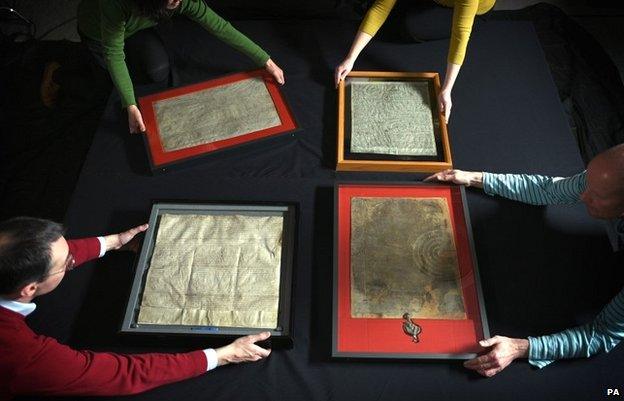
The four surviving 1215 Magna Cartas will be seen at the British Library by winners of a public ballot
It is considered one of the first steps towards parliamentary democracy and includes the principle that no one was above the law, including the king,
After three days, the documents will be taken to the House of Lords for one day before two are returned to the British Library and the others are taken back to Lincoln Castle and Salisbury Cathedral, where they are kept.
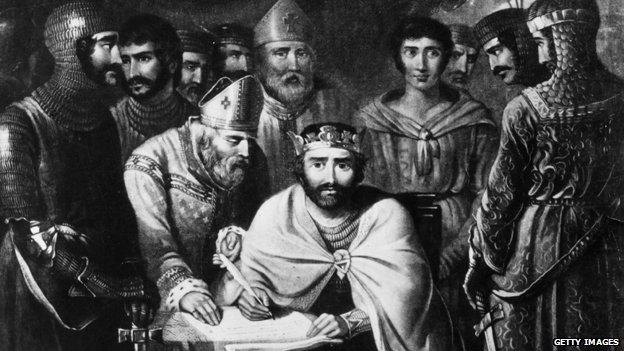
This illustration depicts King John signing the Magna Carta but it is generally accepted he probably authorised it with a royal seal
In a joint statement, the library and cathedrals said: "King John could surely never have anticipated the enduring global legacy of Magna Carta when he agreed to its terms in 1215.
"Eight hundred years later, the international interest and excitement about this unification event is testament to the extraordinary significance and symbolic power of these four manuscripts."
It is believed about 250 copies of the original manuscript were created and sent to legal and religious officials across the country to make sure it was carried out.
Seventeen of these copies are known to have survived.

What was Magna Carta?
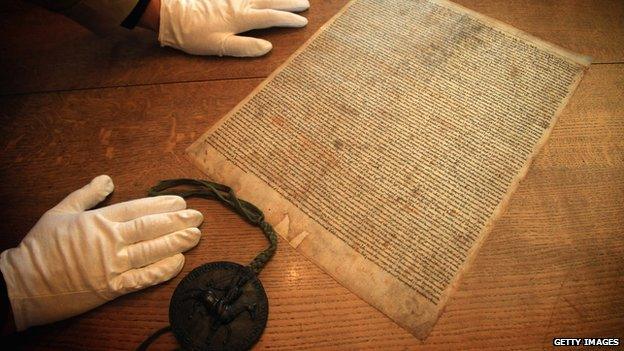
Magna Carta at Salisbury Cathedral dates from 1215, one of four of the first documents that are still around
Magna Carta outlined basic rights with the principle that no-one was above the law, including the king
It charted the right to a fair trial, and limits on taxation without representation
It inspired a number of other documents, including the US Constitution and the Universal Declaration of Human Rights
Only three clauses are still valid - the one guaranteeing the liberties of the English Church; the clause confirming the privileges of the City of London and other towns; and the clause that states that no free man shall be imprisoned without the lawful judgement of his equals

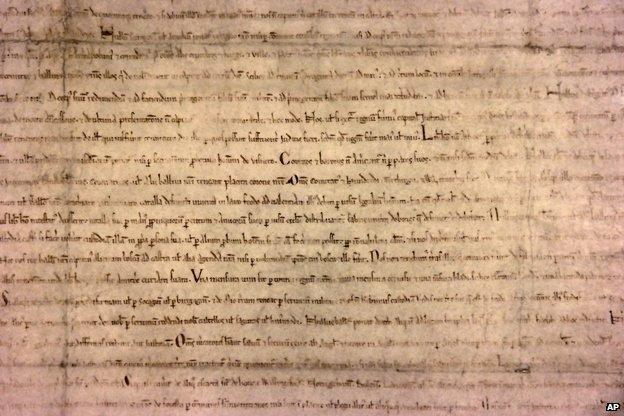
The Lincoln Cathedral Magna Carta is one of four surviving examples of the 1215 parchment document
- Published19 January 2015
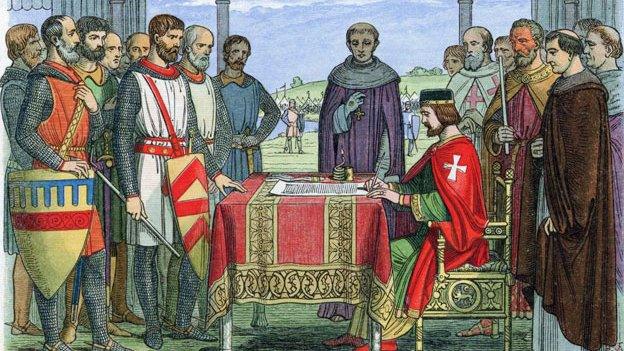
- Published1 January 2015
.jpg)
- Published12 September 2014
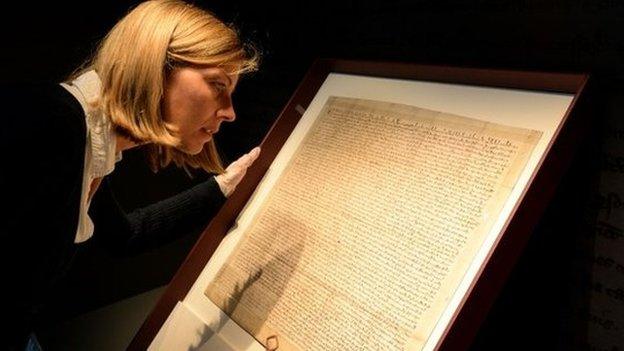
- Published28 September 2012
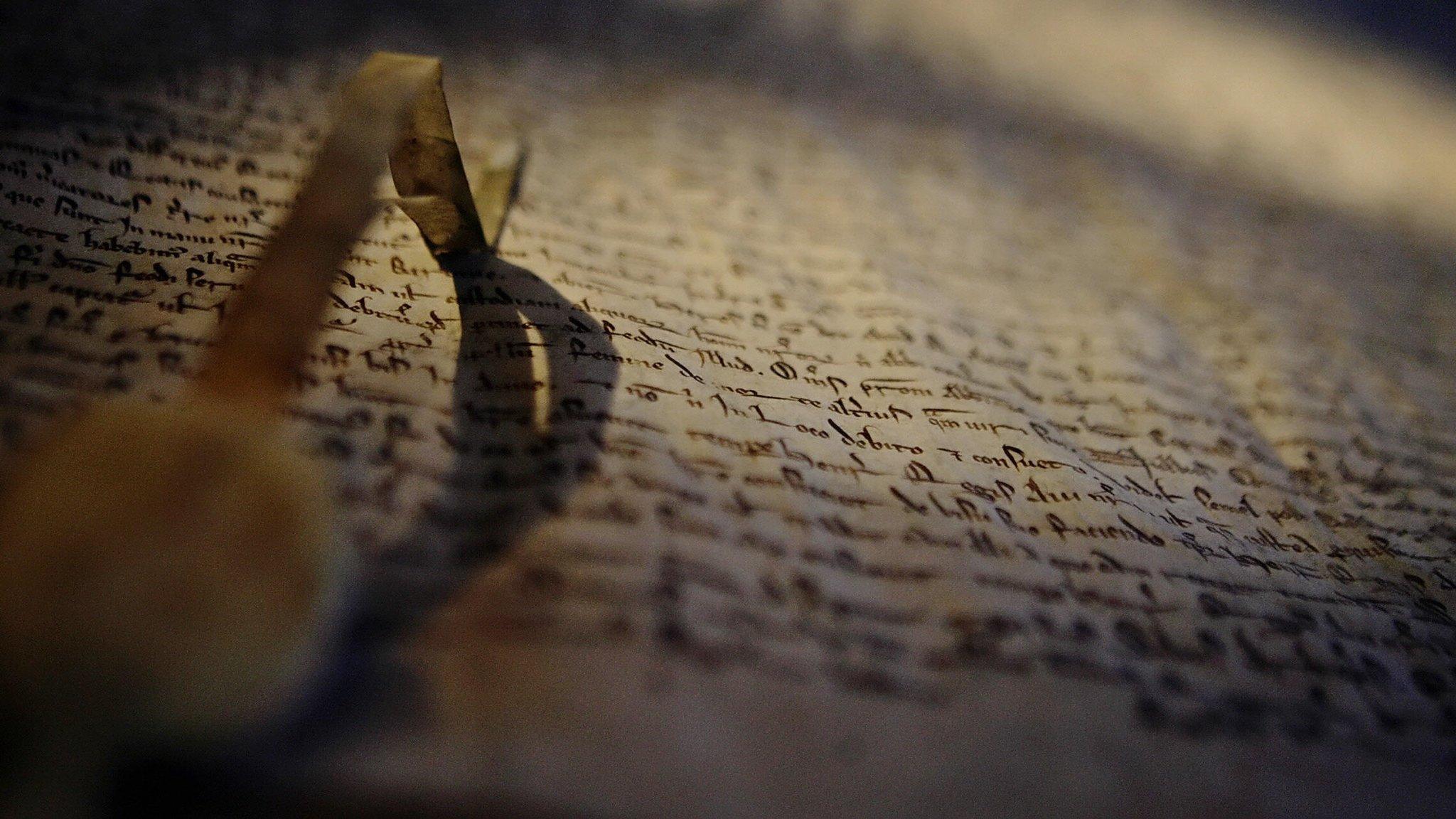
- Published28 September 2012
.jpg)